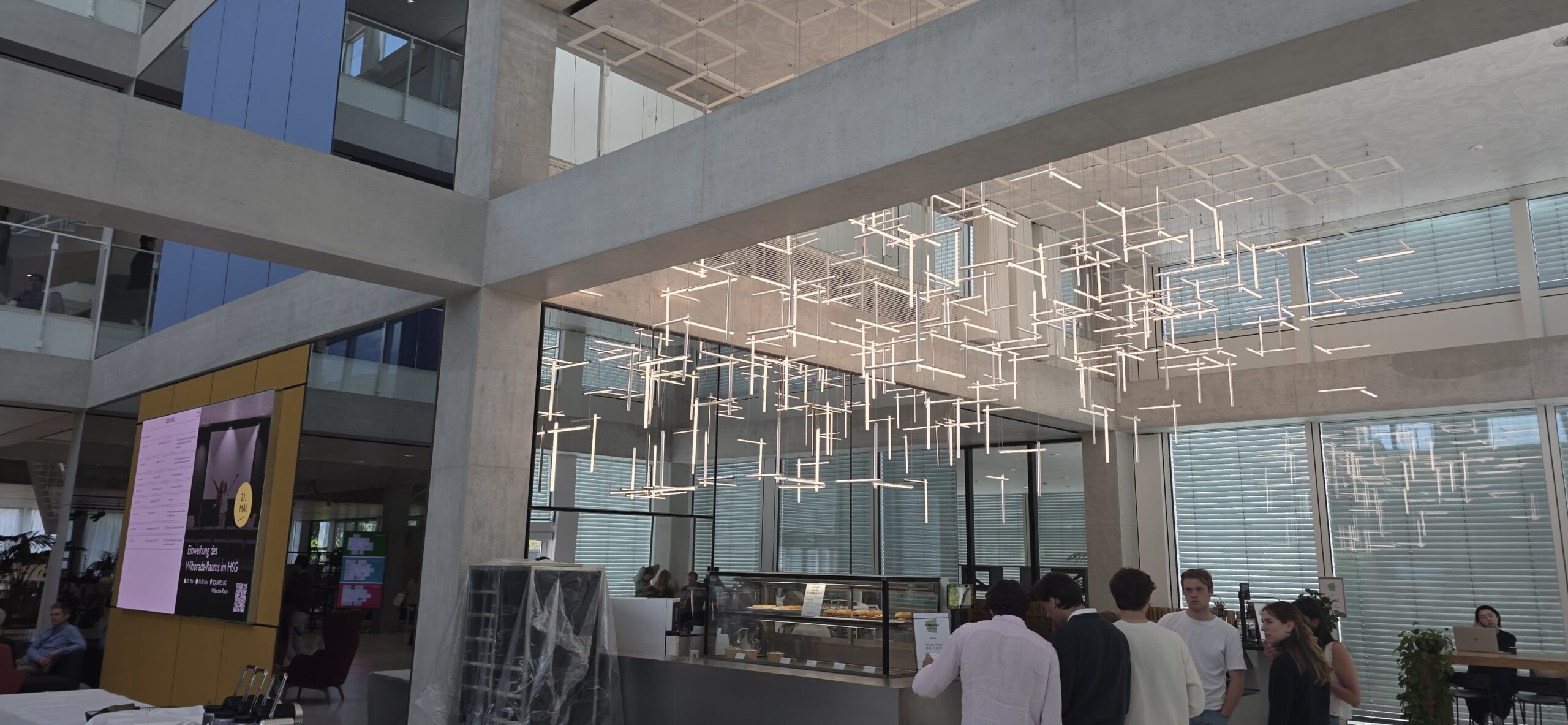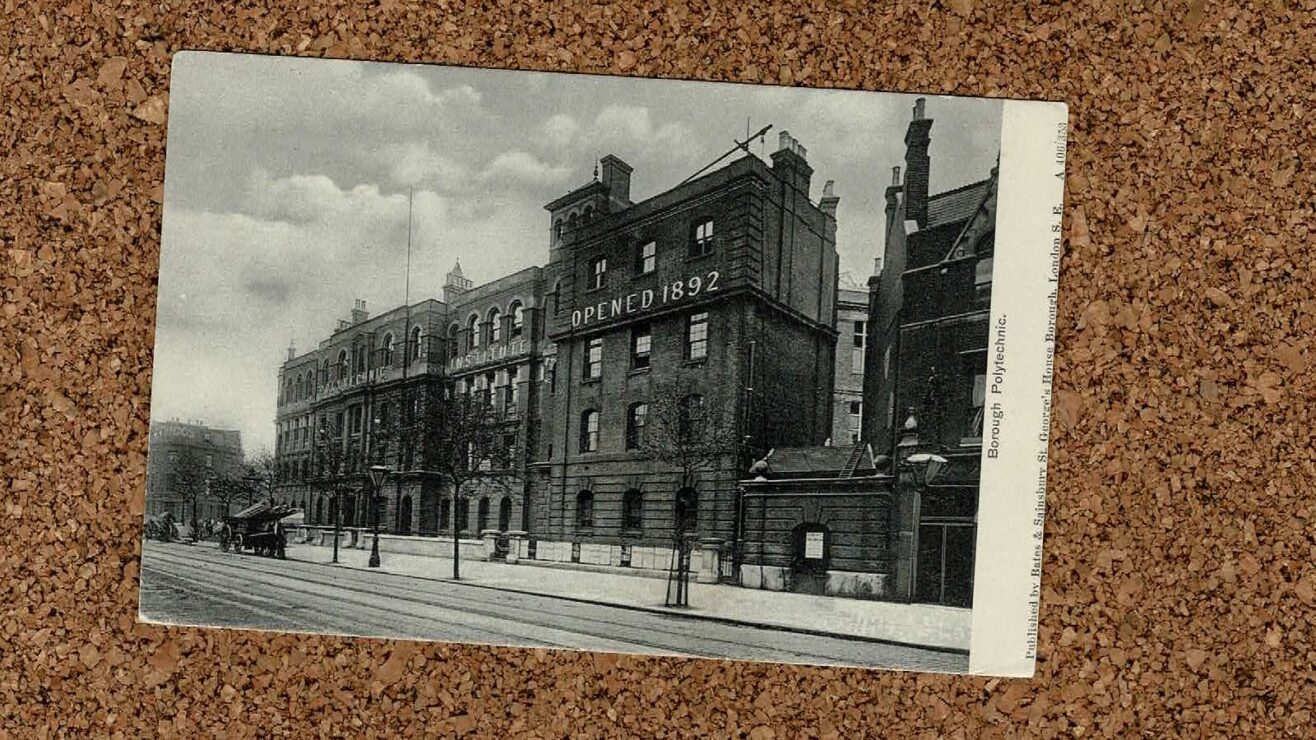How very Swiss.
In most European cities you can always find stories about sixties student protests – but in 1968 in St Gallen in northeastern Switzerland, instead of conflict, five students from Switzerland, Austria, Germany, the Netherlands and Norway wanted to find a way to generate some dialogue towards inter-generational consensus on the future.
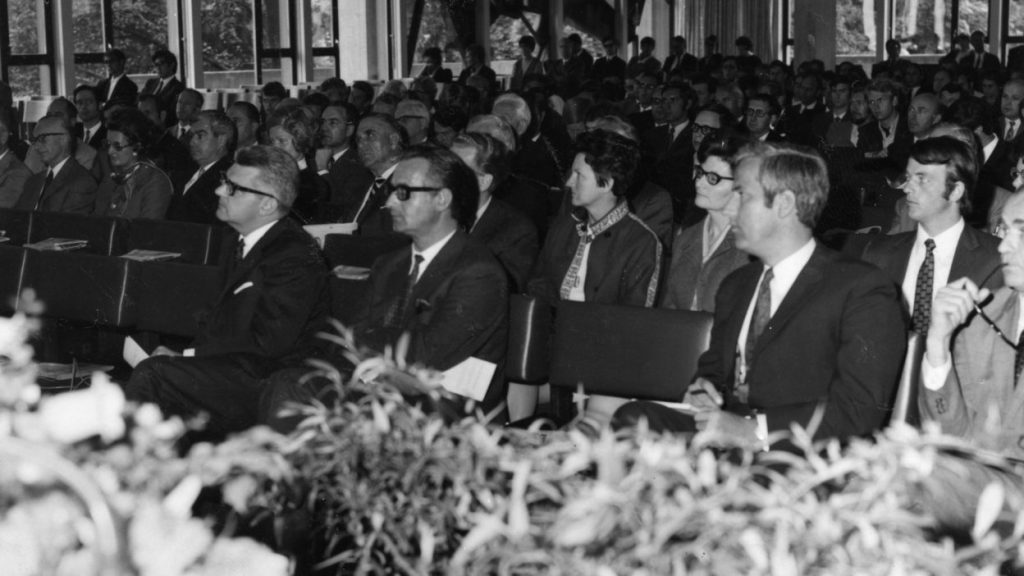
They founded the Hochschule St.Gallen für Wirtschafts (St.Gallen University of Applied Sciences) International Students’ Committee to facilitate an exchange between business representatives, researchers and students.
Today over 50 years on the St. Gallen Symposium is one of the world’s leading conferences for intergenerational dialogue, bringing together global leaders, academics, and young voices to discuss critical challenges shaping the future.
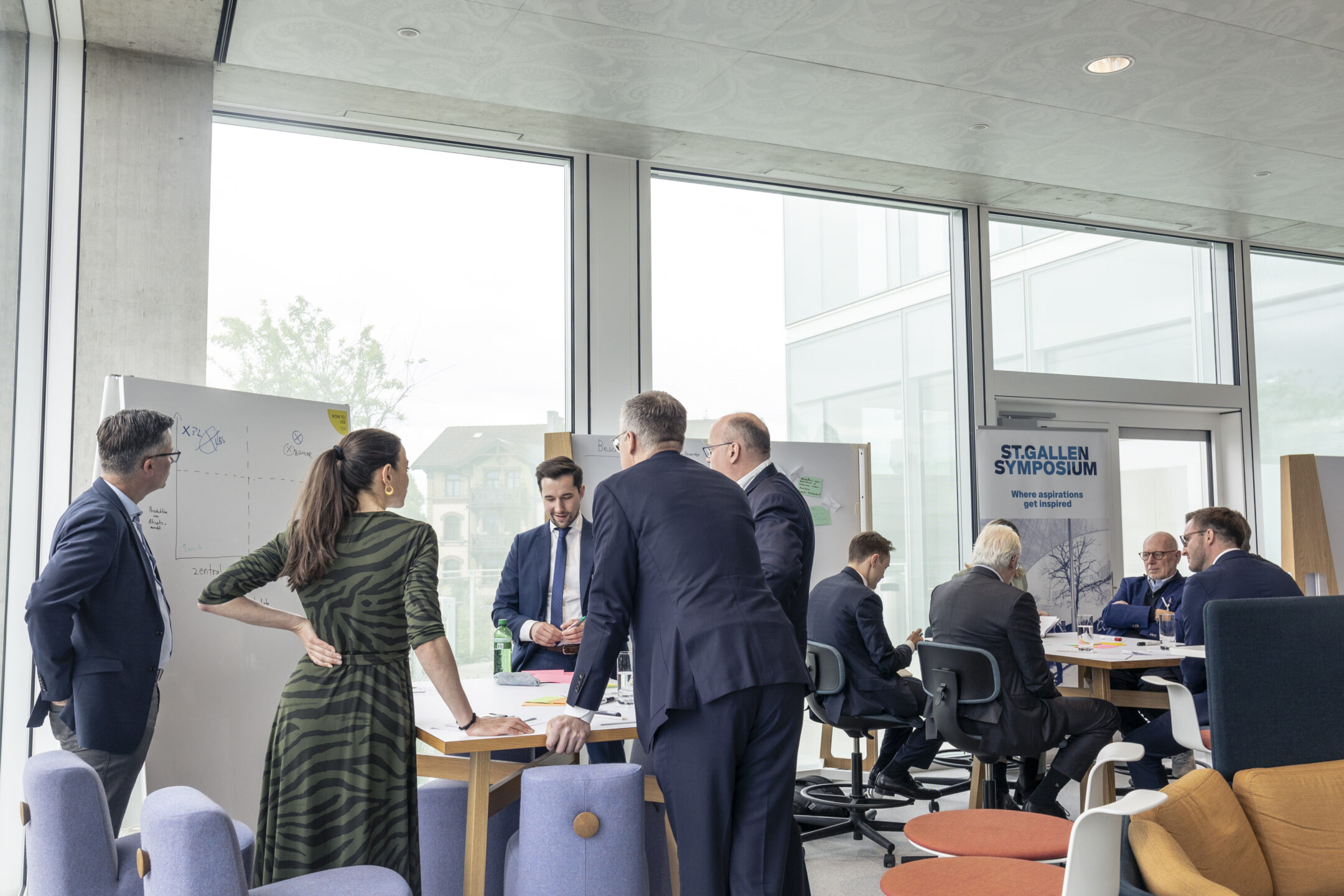
And naturally, it’s all organised by a team of 30 students taking time out from their studies.
This afternoon I’ve taken a train out from the bustle of Basel to visit the university that has produced more billionaires than any other European university. In 1898, the St. Gallen Cantonal Parliament founded a trade and commerce academy, and classes began for its initial roll of 8 students 1899 – making what went to become HSG and now the University of St Gallen one of the world’s first business schools.
Now taking in Economics, Law, Social Sciences, International Affairs and Computer Science, its campus is deliciously brutalist – and for some reason is plonked right in the middle of a residential area on Rosenberg Hill, which if nothing else offers some stunning panoramic views of the city and the Alpstein mountains. Behind the crumbling concrete, though, there’s also a whole bunch of interesting things in its “student experience” worth taking a look at.
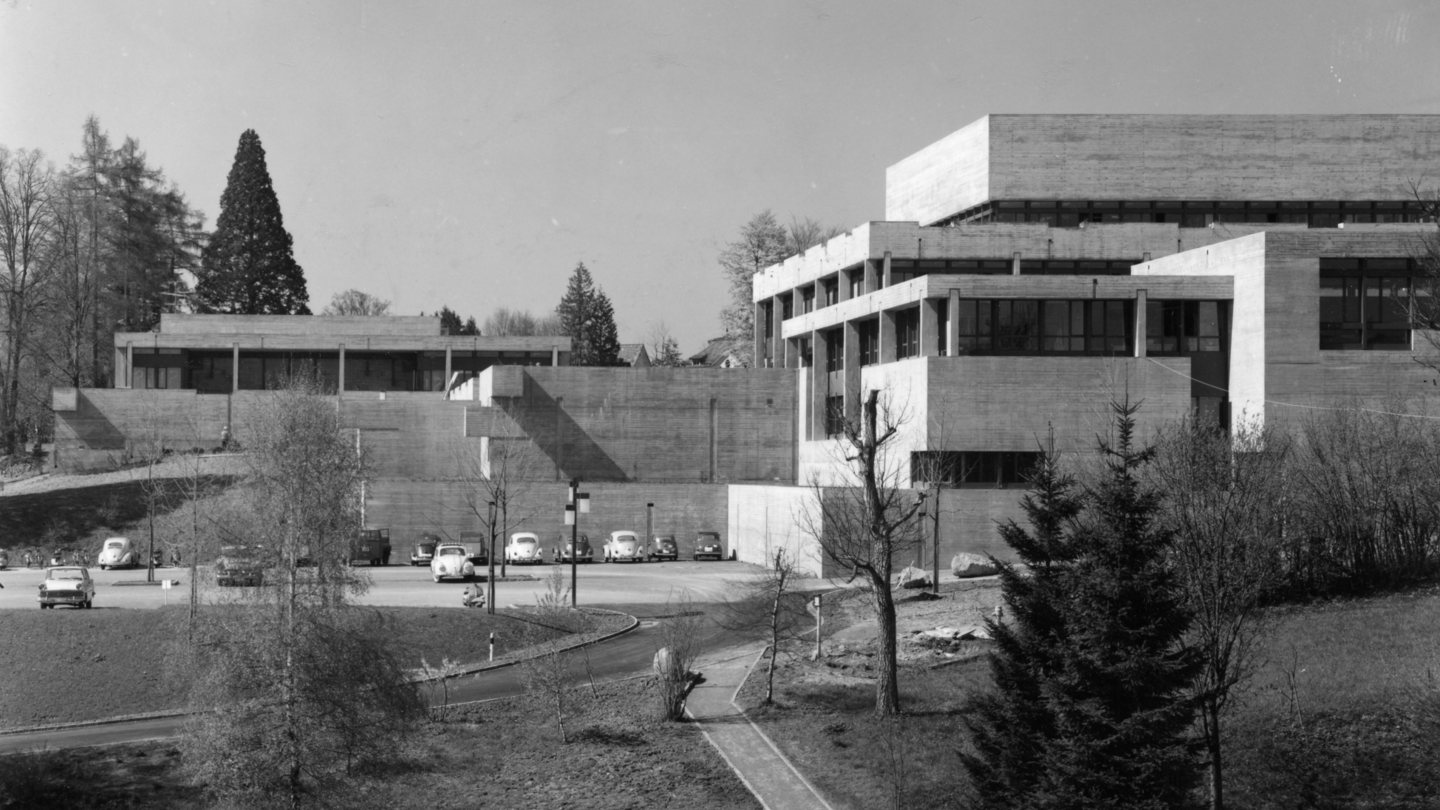
The DNA of the HSG
The university has always been interdisciplinary ever since it was a Business School, with its “Contextual Studies programme” aimed at creating responsible decision-makers who are equipped with critical skills and the cultural and ethical awareness necessary to make a positive impact in their communities and the future of society.
Worth 45 ECTS credits (of the bachelors 180), it has eight focus areas – media, culture, history, society, responsibility, creativity, law, and technology – as well as a proper introduction to academic writing and a foreign language component that allows students to choose among 10 different languages at a variety of levels.
It all culminates in a “portfolio seminar”, an integrative exercise where students link two contextual courses from the same focus area with their core studies through an interdisciplinary research question.
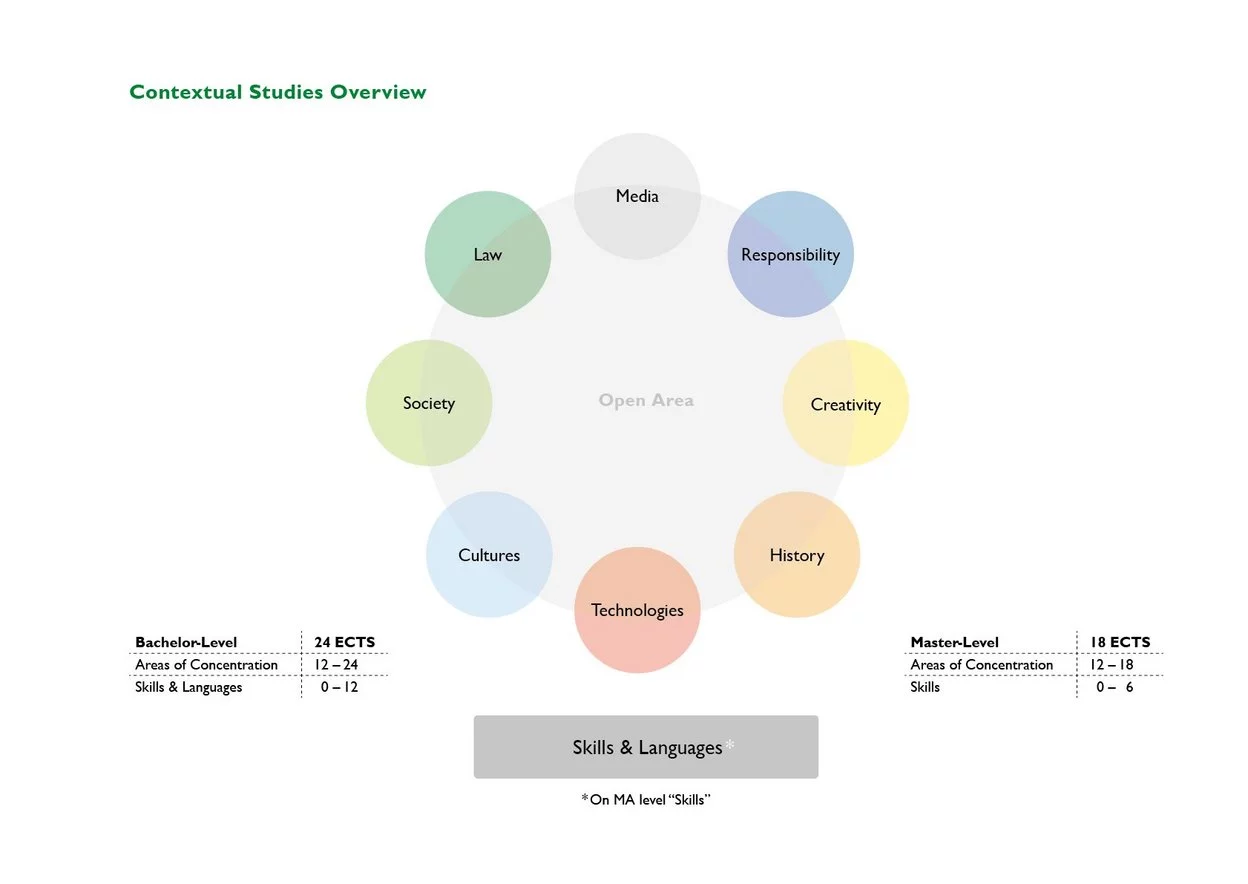
You’ll see that includes elements that scaffold becoming a student at St Gallen – but there’s more to that process. As we’ve seen right across Europe, all new students are divided into groups and accompanied and supported by two students from higher semesters (“tutors”) who share their personal experiences, answer all questions and provide new students with valuable tips throughout the year.
In the first week, all new students also take part in an interdisciplinary case study (“Fallstudie”) which builds confidence in networked thinking, teamwork, and critical self-reflection – as well as promoting responsibility, cooperation and belonging while building subject-specific and methodological skills, allowing students to practice essential academic success factors in a supportive environment.
There’s also 60 oversubscribed spots to become an academic development coach for other students, and a mentoring programme that brings together students with-mid-career professionals – offering alumni a chance to give something back.
In other words, there’s no hidden curriculum here – students are deliberately given the cheat codes.
Tentpole events
That all gets students used to seeing other students leading and getting involved. START Summit 2025 is Europe’s largest event dedicated to early-stage startups, attracting over 7,000 attendees including founders, investors, speakers and (aspiring) entrepreneurs, with students engaged in networking, workshops and pitch competitions.
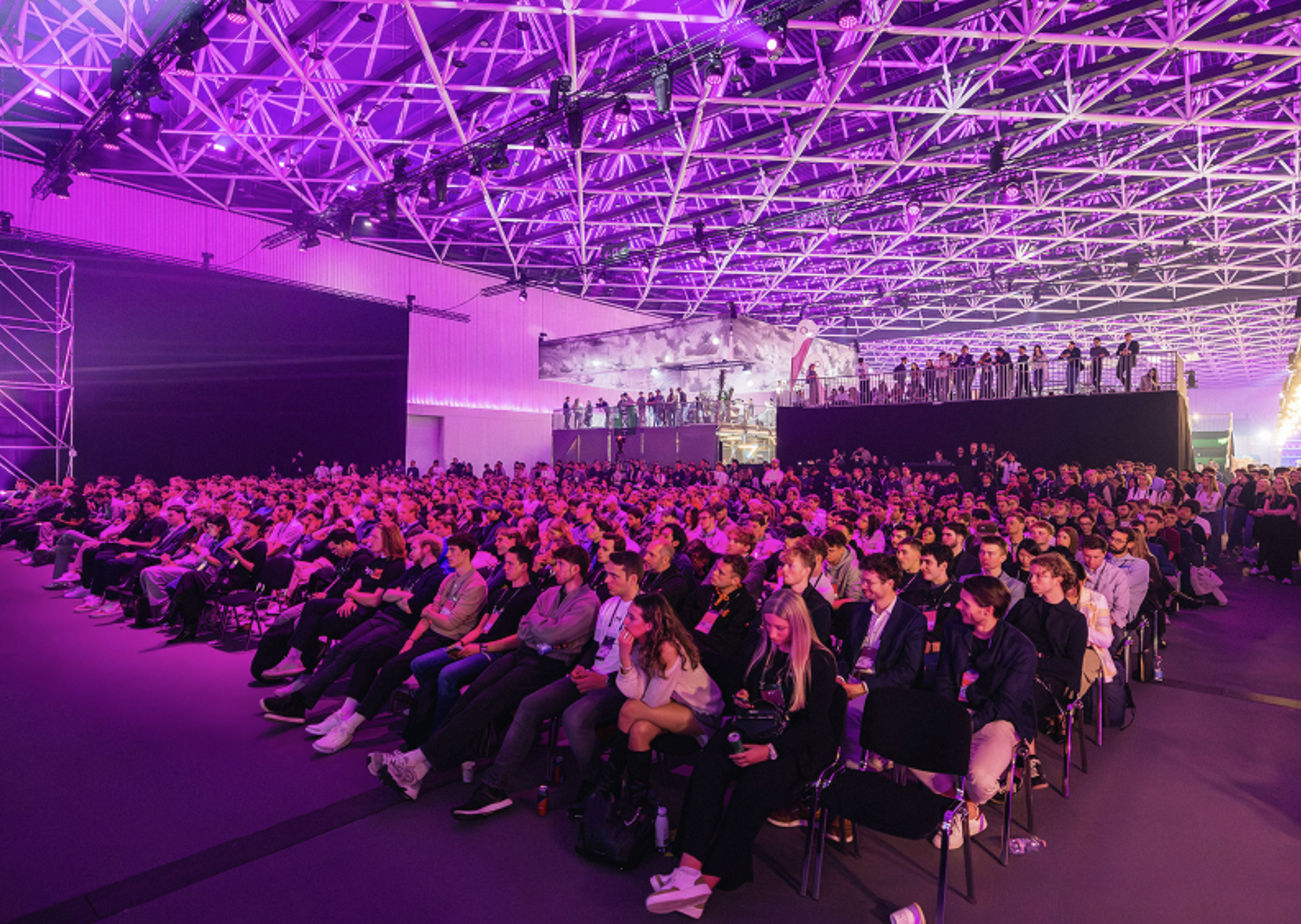
oikos is a leading sustainability project run by 100 student volunteers managing nine projects, including quality education, health, and social innovation. And HSG Talents is its student run careers festival, featuring the usual stalls as well as company insights, interviews, workshops, and case studies – as well as offshoot projects like company dinners, Mix, Shake, Associate, a a scavenger hunt through the streets of the city to selected restaurants, and a networking event where students create chocolates, sushi, burgers, or tapas and establish meaningful connections.
Meanwhile St.Gallen Strategy Days is a two-day geopolitical simulation where students and young professionals step into the roles of ministers, CEOs, generals, and activists to tackle a complex global crisis like Middle East conflicts, energy shocks, and shifting alliances, making high-stakes decisions that shape simulated outcomes. And its Children’s University introduces children in the region to socially relevant topics beyond their regular school curriculum.
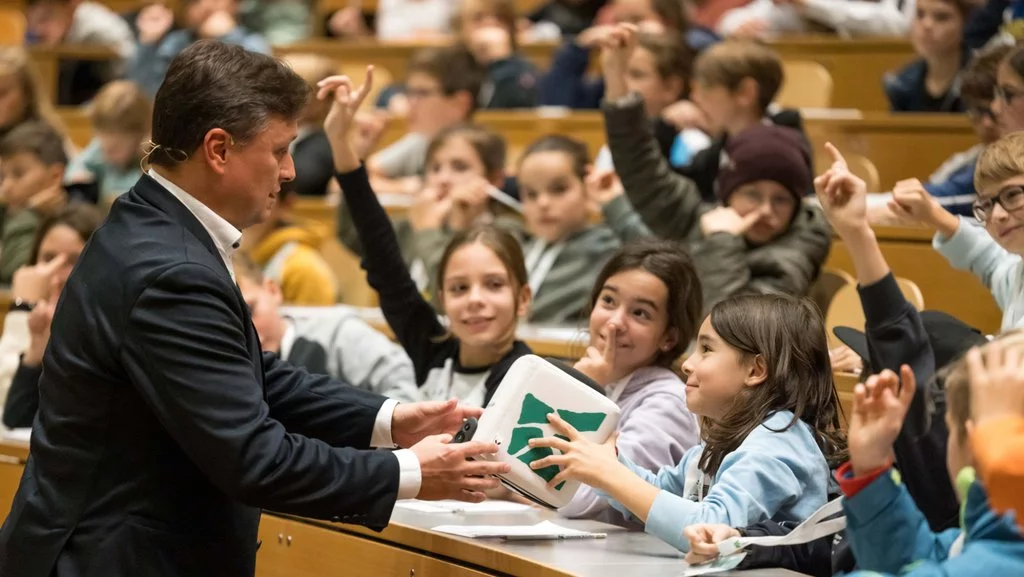
Oh, and Get Connected brings together LGBTQIA+ students and professionals, facilitating the intergenerational exchange of experience; SHSG Summer School is a two-week coding bootcamp organized by the SU; Assessment Guide connects experienced students with first-year students, offering practical support for both academic and social integration and guidance on academic writing, exam preparation, and choosing a major; and the SU’s appeal advisory service offers up support from students studying in advanced semesters in law programmes.
Use your initiatives
The SU has five so-called “initiatives” – as well as campus media, the Skriptekommission is a student-run non-profit organisation that has been printing scripts and books on behalf of lecturers and selling them to students at fair prices since 1968; Bereich G is the gastronomic initiative that makes the best cappuccinos on campus; and Ressort International facilitates International Student Exchange, especially important since Switzerland was booted out of Erasmus plus a decade or so ago.
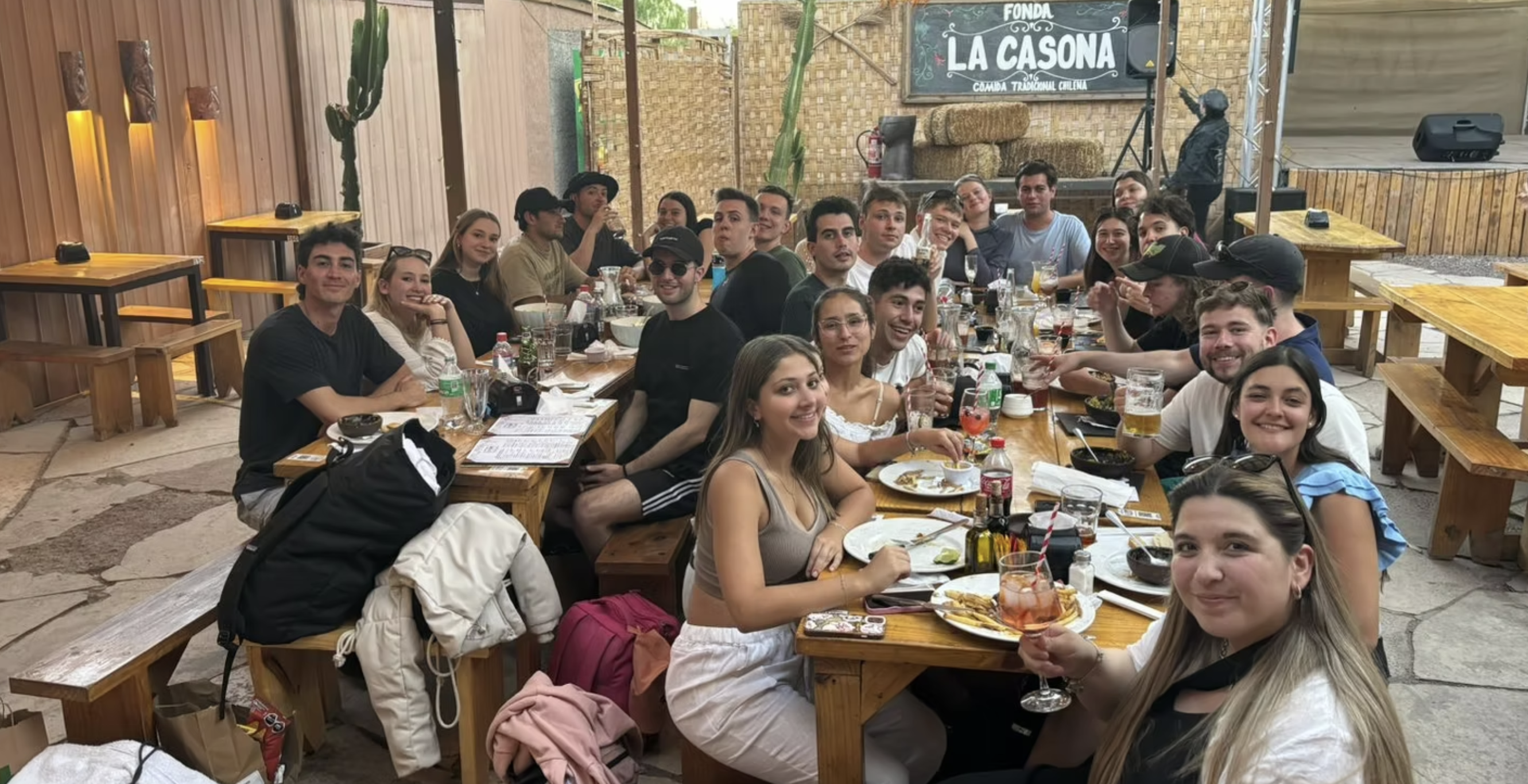
Where in the UK we often see professional staff in universities tussling with (slightly lower paid) professional staff in SUs over who should get the budget to do things for students, this really is a university that appears to want its students to run things, and learn from doing so.
Probably the best example of that is the fifth “initiative” – the one for student infrastructure. Prior to 2020, various student-run facilities existed (like ad-hoc club rooms or small coworking corners), but they were not centrally managed – so in mid-2020, a newly elected SU leadership team lobbied the university to address the growing demand for student spaces and the desire to get students involved in managing the spaces more professionally. The university’s head of estates sits on its board.
Its team of students looks after a relaxation room for powernaps, a set of music rooms, a student-run co-working space in the heart of the city, a student-run cultural event facility in the city, a student-run centre for entrepreneurship next to the city’s railway station, and theOFFICE.
Historically, student societies and projects were scattered in whatever rooms the university could spare, if at all – so the project’s board found a corner of campus, went begging for sponsors and created a clever cluster of temporary office spaces dedicated to associations on campus, and it means they now have a proper “home base” to work from.
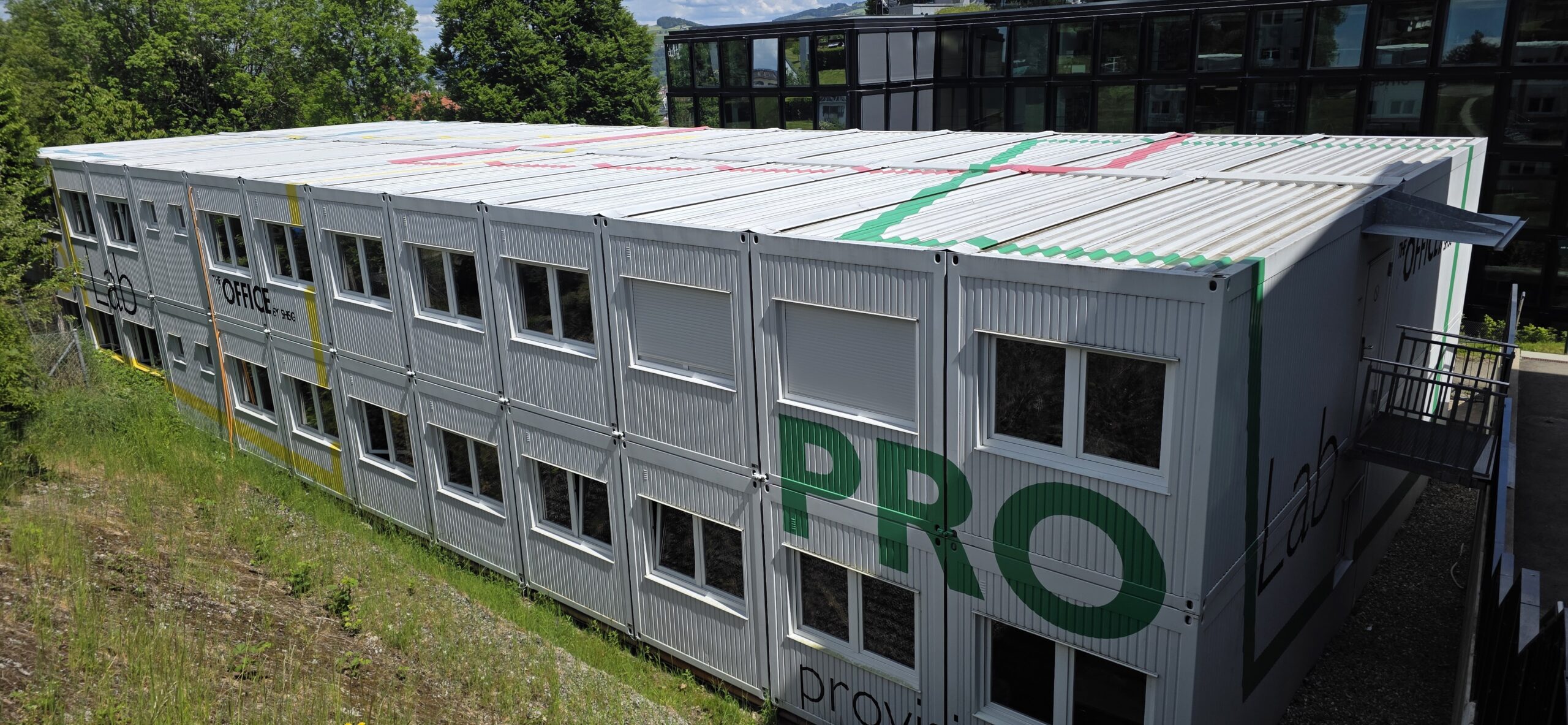
And naturally, so that students can find the time and get recognition for their learning, those running those projects, along with the 140 societies and faculty associations, can accrue up to 14 campus credits (ECTS) towards their final degree.
Be there or be SQUARE
A lot of what goes on takes place in the stunning SQUARE – a modular “open grid” structure of stacked glass cubes, promoting transparency, flexibility, and collaboration. Spanning approximately 7,000 square meters, SQUARE offers adaptable spaces for society events, group work, presentations and university events, including rooftop terraces and unique areas like a Japanese-style tea room.
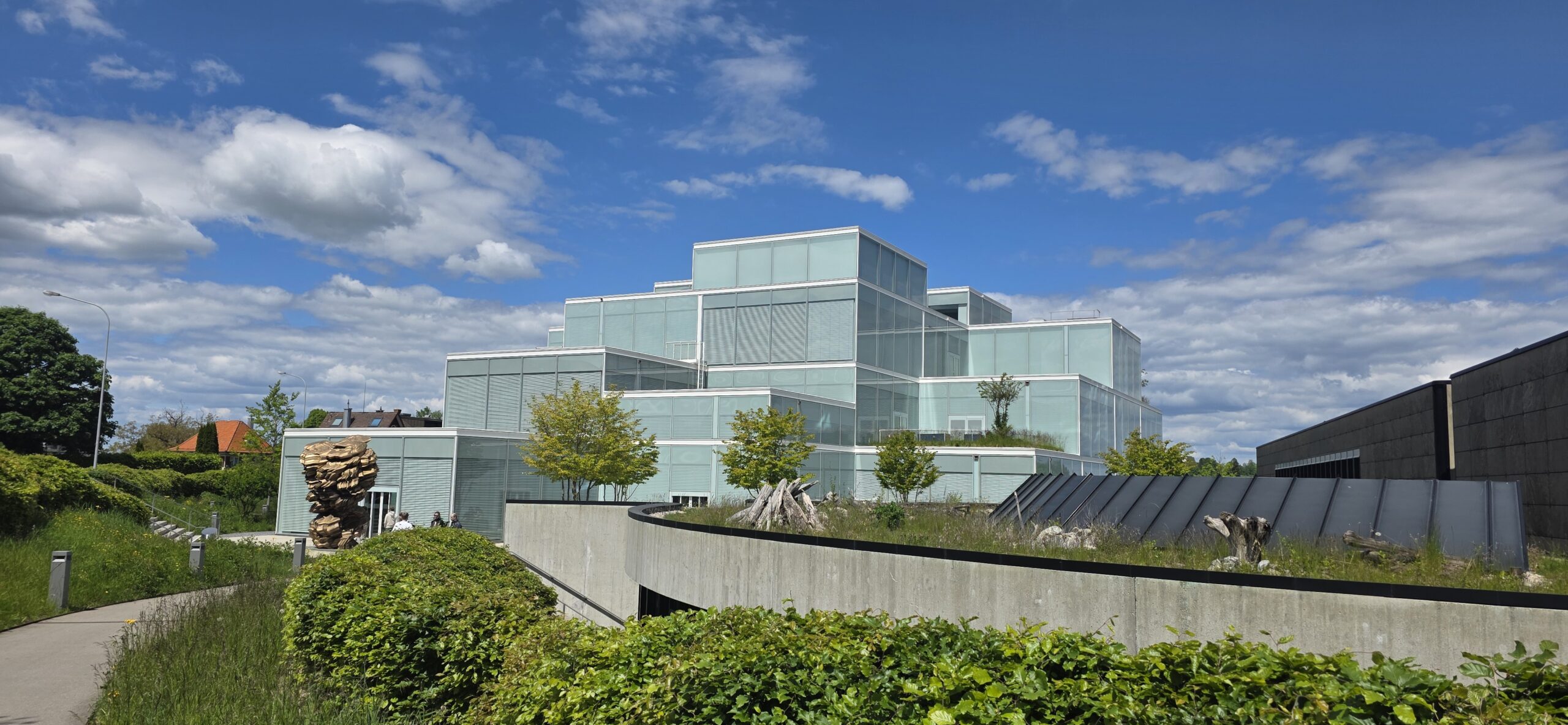
In the last decade St Gallen saw its fair share of scandals – a postgraduate program was found to be 1.1m francs in debt, there was a professor accused by the Financial Markets Authority of serious failings on one of his boards, another who produced studies that primarily benefited the company where he worked as a consultant, and even one who was remanded in custody for possible fraud in the Audi emissions scandal.
There was also the rector accused of doctoring share prices, a national plagiarism scandal, and a professor who managed to siphon off 100,000 francs in unauthorized expenses.
That all led to the creation of a comprehensive HSG Ethics Code and an independent Whistleblowing Office in 2022 – a clear, integrated framework for accountability and ethical conduct across both staff and students that covers everything from academic integrity and workplace conduct to reporting mechanisms and supervisory responsibilities, anti-discrimination requirements, research supervision ethics, and sustainability commitments.
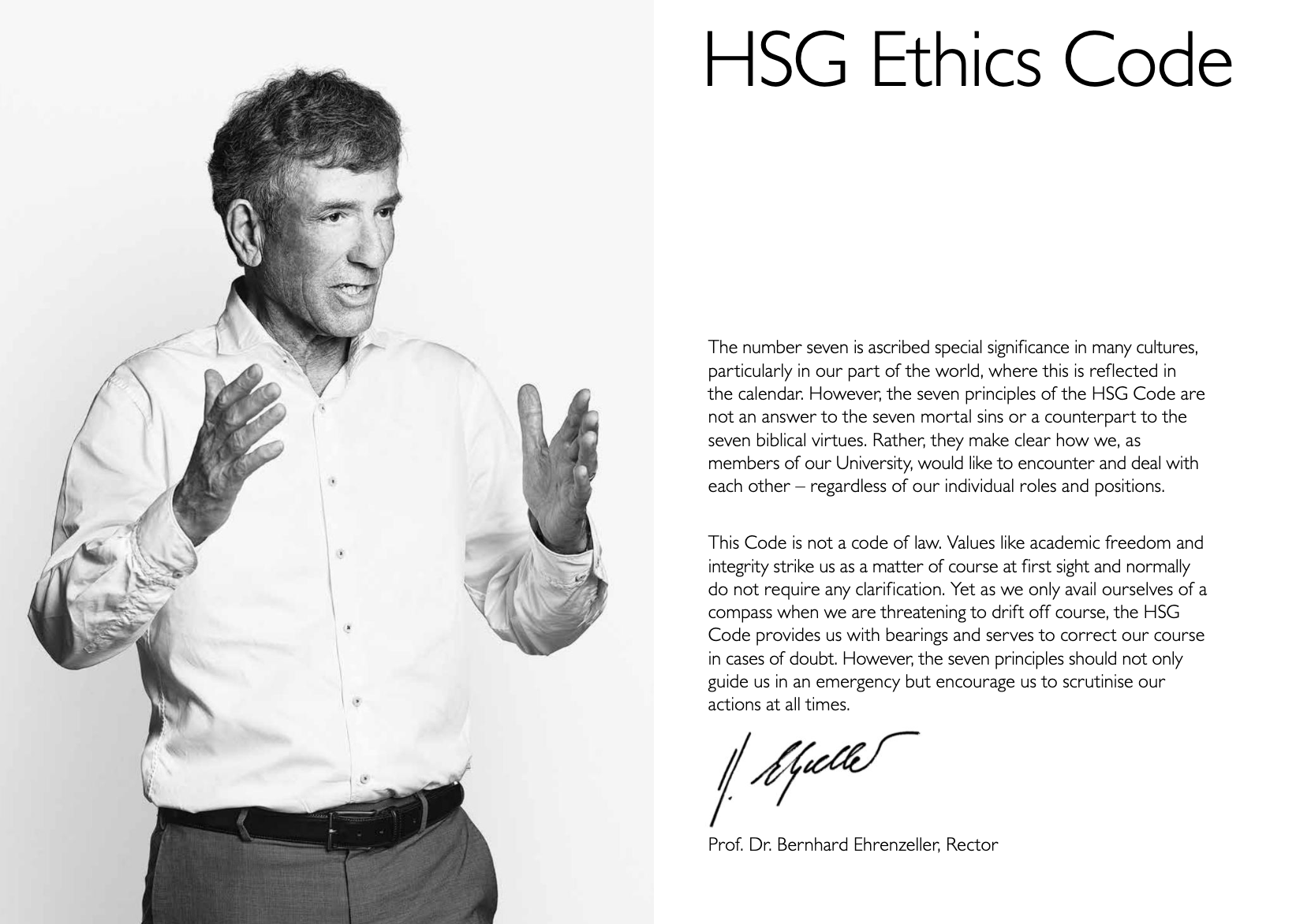
It’s all backed by universal induction for staff and students, formal regulations and an independent oversight office to prevent the recurrence of past scandals – as well as a dedicated Ombuds Office which aims to promote trust between university members and to solve conflicts in an informal (and very Swiss) way.
So what might we learn in the UK? It may well be that an already wealthy country is much more likely than others to have its premier Business School top of the tree when it comes to billionaire production.
But add all that up, and you see how its vision of “impact that has practical relevance” comes to life via real, extensive and tangible opportunities for co-creation across the campus.
The left of Switzerland’s politics regularly accuses St Gallen of promoting capitalist ideologies and prioritising corporate interests over social equity. But at least it attempts to make sure they get real experience of social responsibility in the process.
